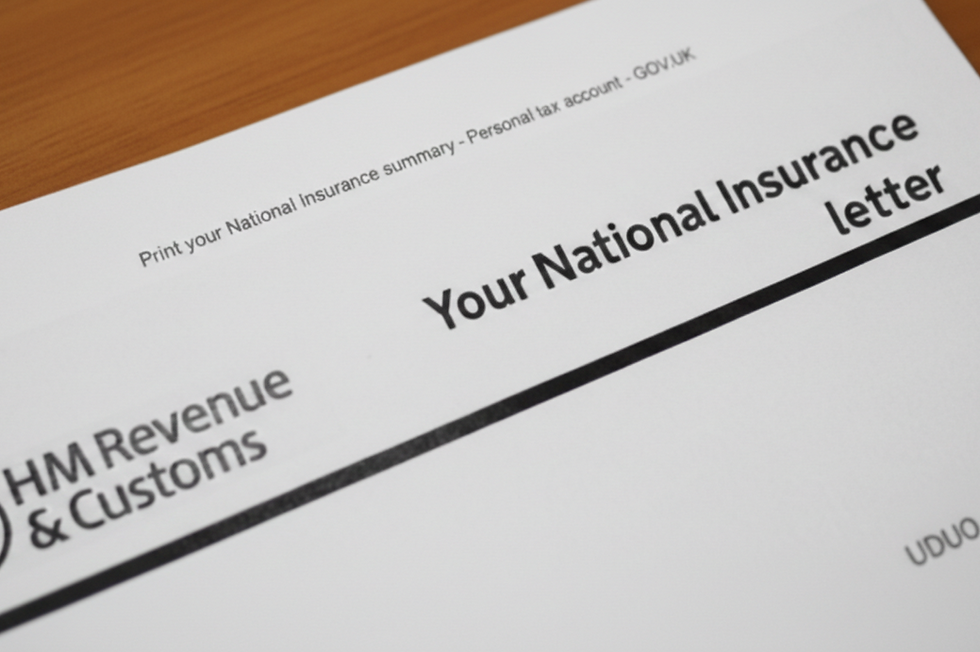What is the Most Tax-Efficient Way to Own a Rental Property?
- Sep 19, 2025
- 3 min read

Owning a rental property can be a great way to build long-term wealth, but for many landlords in the UK, one big question comes up straight away: What’s the most tax-efficient way to own a rental property?
If you get it wrong, you could end up paying more tax than you need to. Get it right, and you can keep more of your rental income and grow your property portfolio faster.
In this guide, we’ll break it down in simple terms so you can make the best choice for your situation.
Option 1: Buying in Your Own Name
Many first-time landlords buy property in their personal name. It’s the simplest route, but it comes with some tax challenges.
Income Tax: Rental profits are taxed at your personal income tax rate. That means:
20% if you’re a basic rate taxpayer
40% if you’re a higher-rate taxpayer
45% if you’re an additional rate taxpayer
Mortgage Interest Relief: Since April 2020, landlords can no longer deduct mortgage interest as a business expense. Instead, you only get a 20% tax credit, which hits higher-rate taxpayers the hardest.
Example: If you earn £20,000 in rent and pay £8,000 in mortgage interest, a basic rate taxpayer will get a 20% credit on the £8,000 (£1,600). But if you’re a higher-rate taxpayer, you also only get the 20% (rather than 40% or 45%) credit, which can significantly increase your bill.
✅ Best for: Basic rate taxpayers, or landlords with no mortgage.
Option 2: Buying Through a Limited Company
More and more landlords are choosing to buy rental property through a limited company.
Corporation Tax: Rental profits are taxed up to 25% (19% for profits under £50,000), which can be lower than paying 40–45% as an individual. However, this is business tax only; the money's not in your bank account yet!
Mortgage Interest Relief: Companies can deduct 100% of the mortgage interest as a business expense.
Tax on Dividends: If you want to take money out of the company, you’ll pay dividend tax. However, you can control how much and when you withdraw, which gives flexibility for tax planning. Furthermore, dividends are taxed at a lower rate than income tax.
Example: Let’s say your rental profit is £30,000.
As a higher-rate taxpayer owning personally, you might lose nearly 40% of this to tax.
Through a company, you’d pay 19% corporation tax (£5,700), and the rest stays in the business to reinvest.
✅ Best for: Higher-rate taxpayers, landlords with multiple properties, or those planning to grow a property portfolio.
Which Option is Best?
There isn’t a one-size-fits-all answer. The right choice depends on:
Your current tax bracket
Whether you plan to grow your portfolio
If you want to keep profits in the business or take them out for personal use
Whether you have a mortgage
Key Takeaway
The most tax-efficient way to own a rental property often depends on your income level and long-term goals.
If you’re a basic rate taxpayer with one property and little to no mortgage, personal ownership may be fine.
If you’re a higher-rate taxpayer or want to build a property business, a limited company could save you thousands in tax over the long term.
Making the wrong choice could cost you more in tax than you realise. At Duo Accountants, we help landlords across the UK structure their property investments in the most tax-efficient way. Book a free consultation today, and we’ll walk you through the numbers for your specific situation.
RELATED READINGS:



